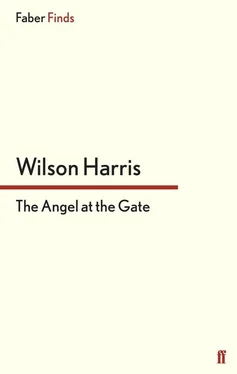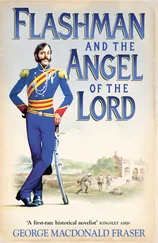It had been a depressing morning, damp, cold, heated atmospheres in turn. They had quarrelled over money. He had called her a cold-hearted bitch. Then he had stormed out of the house. The quarrel, on Stella’s part, had been aggravated by the fact that she was suffering from an intermittent cough and had been to the doctor who advised her to stop smoking. It was around noon when Sebastian left the house, frustrated and miserable. Stella undressed. She looked at herself in the mirror. She was unquestionably thin, she felt, but magnetically young all the same she knew from the automatic bite of Sebastian’s blind, metallic eyes. Perhaps the magnet that pulled his eyes into her body resided in her small, rounded breasts and slender legs balancing themselves like fashionable twigs of whittled and daring flesh in league with technical body. It was as if the marrow of sex dared not only to wear bone but magnet, white and rosy marble.
Magnetic exposure! Yes, one throve on hidden varieties of magnetic exposure. One’s mirror was crowded with phantom, shared bodies of fashion. Cinematic nudes. Fashionplate buttocks. Stella pirouetted in the mirror. Perhaps she should have been a model or a dancer. The room seemed now full of eyes as if an invisible camera were presiding over a private auction-block riddle, invisible camera impressed with the faces of eighteenth-century, nineteenth-century, twentieth-century, staid accountants who flocked Father Marsden’s Angel Inn in search of the blessing interfused with the curse.
Perhaps Mary could advise her. Forlorn hope. Mary and she had not been on good terms lately. A wall had risen between them. Mary felt Stella was neglecting John.
She turned from the crowded mirror, the invisible camera, and slipped into bed but not before swallowing a couple of valium pills or sleeping tablets. She forgot John who was playing in the sitting room with his trains and chariots. Sleep settled upon her. A thundering knock smote the door like the hooves of a horse. Stella shot up and was filled with horror to discover that she had not corked the bottle of pills on the table beside her bed, and John had come into the room and was about to empty the contents into his mouth. Stella snatched it from him in the nick of time.
“You wicked, wicked child,” she said.
But he saw nothing wicked in what he had been about to do.
The thundering hoof came again.
Stella arose, went to the window and peered through the curtains. She could just make out the shadow of someone standing at the front door and was flooded with gratitude. His knock had wakened her, thundering judgement day knock. He knocked rather less loudly now and began retreating down the steps into the narrow garden from which he looked up at the window where Stella stood. Perhaps he glimpsed her naked body through the slightly open curtain and it made him curse softly. “You, lady! Sebastian owes me a fiver. Let me jump you and he can keep it.” And then, as if to confirm what he was, he undid his fly and exposed himself with studied deliberation. It all happened in a flash, phantom jockey, phantom horse. He buttoned his fly again and vanished into the street but Stella remained at the curtains as if she had been judged, if not jumped. Her posture broke. Tears rose, evaporated, rose afresh. Her first impulse was to berate Sebastian’s “horses”, to curse him for his friends and the abuse they heaped upon her. It was he who had summoned the beastly man. Was he beastly? Was judgement day the moment of the beast, mutual beast, mutual animal in whom birth and death are mirrored in sex, truth and lies, salvation and damnation? She pulled John against her and turned from the window. She stared at the bottle of pills she had now placed out of his reach.
“Oh my god,” she said, “thank god! You are safe.”
*
When Sebastian learnt later that day of the events of the afternoon he seized upon them to justify his frustration.
Stella was unbalanced, he said.
It was clear, he said, that John had been in the greatest danger because of her prime carelessness.
He brushed aside the story of the jockey who had exposed himself in the street or in the narrow garden under the bedroom window. It was all an invention, he said, to put him in the dock. Sheer fantasy on her part, he said. Better still, it was a lie. An age of obscenities and lies. Who would stand there in the broad daylight and do such a thing? Wasn’t it a fact that she was unable to say what he looked like, what clothes he wore, what he had employed to make such a loud and thunderous racket on the door? Did he, for instance, possess a walking stick…?
Stella protested that she had been in a state of the greatest shock, not simply on seeing the man but over the open bottle of pills that John had come within an ace of consuming and she had forgotten what the man looked like. Perhaps under hypnosis … But Sebastian brushed that aside. The man had grown faint as the phallus of the sun. He was an angel dressed up as a beast. He could have been anybody on earth one faces in the street but, because of one’s intimate worries and stresses, eclipses in one’s mind before a fictional moment, fictional eternity, has elapsed. Even the things he had said had sounded bizarre (he had called her “lady” even as he “judged” her). Under hypnosis she recalled something he mouthed as he stood in the garden:
My age is much older than this circle of earth
or this middle-world could ever attain,
and I was born yesterday — a baby
from my mother’s womb, acclaimed by men.
I’m more attractive than gold ornaments,
even if filigree work adorns them;
I’m more foul than this mouldering timber
or this slob of seaweed spewed up here.
I’m broader than the earth entire,
and more wide than this green world;
a hand can agitate me, and all that I am
can easily be held between three fingers.
I’m sharper and more biting than sharp frost,
the fierce rime that settles on the soil;
I’m hotter than the fire, the flames
surging and flickering at Vulcan’s forge.
I am, besides, sweeter to the palate
than the honeycomb mingled with honey;
I’m more bitter than wormwood, too
that stands, ashen, on this hillside.
(Father Marsden identified this as a late eleventh-century English poem of which Mary was unaware from the Exeter Book Riddles ; it was a riddle of the creator.)
Dolphin Street was, on the whole, in a quiet if not “seaweed” thoroughfare. The intruder may have been a sailor or a candlestick maker or a butcher who was loitering but posing no good reason for passers-by to suspect him. His back was to the street as he stood in the garden. And even if the next door neighbour had seen him (which was unlikely) it had all happened so quickly that he would have been there and gone before anyone could sing Jackson or, for that matter, Mack the Knife.
Stella appealed to Mary for support but Mary, in this instance, was on Sebastian’s side. She felt almost as guilty as Stella. The danger to John was all she could see; and the wall between the two women rose higher than ever in their fictional identities. Stella blamed herself for blabbing to them of the nightmare riddle she had had. Perhaps it had been a dream, one of the few she woke and vividly recalled. No, it was true. It had all happened though there was no one to prove it but herself.
As the wall continued to rise between them like an ephemeral, yet solid sea Stella saw the tidal deposit or difference between them — between herself and Mary — between herself and an intimate, alien world — clearer than ever now.
Mary’s style or deposit, so to speak, was quite different from hers. Whereas Mary loved a variety of gowns and dresses, she wore rather drab slacks. No eye-shadow, unvarnished nails. Did that suggest a gulf of centuries, weeks, days, religious holidays, profane holidays, on the auction block of fashion? Stella did not know but sometimes she felt she slipped more easily in and out of the crowds of Shepherd’s Bush than Mary did. Indeed she seemed so normal and easy-going that few — perhaps an uncanny Utopian accountant — would have guessed her longing for perfectibility. And even he may have failed to see her obsession with the wall that divided her from Mary (from the graces by which Mary was apparently adorned by Father Marsden) and from others with whom she occasionally rubbed shoulders in the street.
Читать дальше












